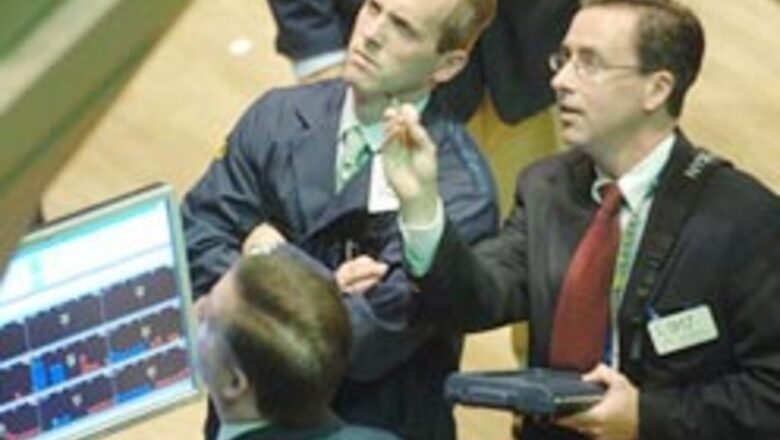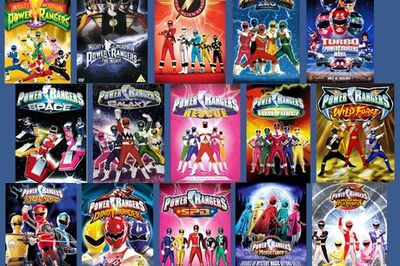
views
New York: What is happening to the US economy? Has the wide-scale outsourcing of businesses, losses suffered by the US economy in Iraq War, the arrival of the ‘third world countries’ on the global business scenario — hit the US economy so hard that it’s heading towards crisis akin to a Great Depression of 1929?
“May be”, say the analysts who can trace an alarming trend that show, US economy undergoing similar predicament as witnessed during 1929-30 — the period when the country was in the run up to the World II.
At present, the US stock markets are facing liquidity crisis. The European markets took a nosedive on Thursday, much to the horror of investors groups who are still recuperating the losses suffered due to the freeze put on three major hedge funds by France’s largest bank BNP Paribas.
Cheap Money? Not Any More…
For years, the United States was awash in so-called "cheap money". That is, cash easily loaned out due to historically low interest rates. This helped fund everything from cheap home loans to eye-popping private equity buyouts and corporate stock buybacks.
Even as a number of central banks were raising interest rates, to mop up some of this excess liquidity, the cheap cash kept flowing. But now the US economy is seeing a reversal.
Over the past few months there has been a tightening of credit. Individuals and companies in US are finding it hard to borrow money, raising concerns of a credit crunch. So what's the worse case scenario?
The stock markets may face more nosedives. There is going to be seize up in liquidity, because people are losing confidence in the ability to placing a line of assets in their portfolio.
It’s a simple rule put together for the common people in the US—if you can't sell something, you can't borrow against it. And as a result you can't spend. To get money to spend people are heading to the exits from the stock markets as fast as they can.
PAGE_BREAK
The trigger for all this turmoil is the decline in the US housing market.
During the housing boom, billions of dollars worth of home loans were handed out to people with poor credit histories who did not qualify for more traditional loans.
These so-called subprime loans helped give families a shot at the American dream: to be able to buy a home they would otherwise be unable to afford. But the housing market began souring in a big way last year.
Low credit-quality homeowners were unable to pay back their loans, and then the trouble started. In April the level of defaults forced the mortgage company New Century Financial to file for bankruptcy.
In June investors learned it was not just subprime lenders in trouble. Wall street giant bear Stearns shut two hedge funds sending shock waves through financial markets.
Collapse Of Mortgage Companies, Soaring Interest Rates
After the recent collapse of American Home Mortgage, the 10th largest lender in the US. The US markets are in fact plagued with worries over skyrocketing interest rates and increasing credit defaults.
On Thursday the indices all over the world got bitten by the European crash. France's biggest bank BNP Paribas has suspended three of its hedge funds resulting in a global downslide across the indices
On Thursday United States stocks plunged with the Dow Jones falling to its second worst close so far this year, as reports of liquidating hedge funds triggered more credit-related anxiety.
In recent months, the number of loan defaults in US has increased because of higher interest rates, raising concerns that the wobble in the housing market will affect other parts of the economy and then start hurting other nations.
The worry is that, should banks make losses then it would hurt their earnings and their profitability making them less willing to fund the takeovers and buyouts that have underpinned much of the stock markets' recent gains.
The recent collapse of American Home Mortgage, the 10th largest lender in the US, has intensified those concerns. At the same time, banks have suddenly started charging significantly more for the money they lend to each other, signaling that they are looking to limit their risks, analysts said.
The declines in the US markets came despite attempts by President George W Bush to calm market fears. Speaking after a meeting with his top economic advisers, President Bush acknowledged there had been "disquiet" on Wall Street over the housing slump.
But President Bush said he believed the markets were set for a "soft landing".
President Bush said he expected the markets to focus increasingly on the underlying health of the global economy and robust US prospects.
"The underpinnings of our economy are strong," he said, adding that second-quarter growth had been strong, while both inflation and unemployment remained low.
"So the conditions for the marketplace working through these issues are good. My hope is that the market, if it functions normally, will be able to yield a soft landing”.
So why is all of this happening? The answer can be traced to the US President Bush says the US Economy is "thriving" But some home owners may not be in such good shape. And that’s the root cause of the subprime market crash. So why are the investors running for the exit, and why now.
And on August 6 the American Home Mortgage filed for bankruptcy protection. More than 6-thousand employees lost their jobs.
Many analysts worry the fallout is just beginning because of the complex way subprime loans are packaged and sold to the public it is not clear who is vulnerable.
The US Federal Reserve and Europe's central bank are trying to head off a broader crisis by injecting liquidity into the global financial system. But investors remain wary of just how deep a wound this Subprime issue will leave.
With inputs from cnn.com




















Comments
0 comment